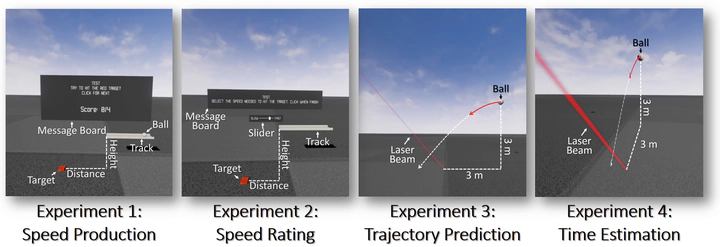[TVCG16] The Martian: Examining Human Physical Judgments Across Virtual Gravity Fields

Abstract
This paper examines how humans adapt to novel physical situations with unknown gravitational acceleration in immersive virtual environments. We designed four virtual reality experiments with different tasks for participants to complete: strike a ball to hit a target, trigger a ball to hit a target, predict the landing location of a projectile, and estimate the flight duration of a projectile. The first two experiments compared human behavior in the virtual environment with real-world performance reported in the literature. The last two experiments aimed to test the human ability to adapt to novel gravity fields by measuring their performance in trajectory prediction and time estimation tasks. The experiment results show that: 1) based on brief observation of a projectile’s initial trajectory, humans are accurate at predicting the landing location even under novel gravity fields, and 2) humans’ time estimation in a familiar earth environment fluctuates around the ground truth flight duration, although the time estimation in unknown gravity fields indicates a bias toward earth’s gravity.